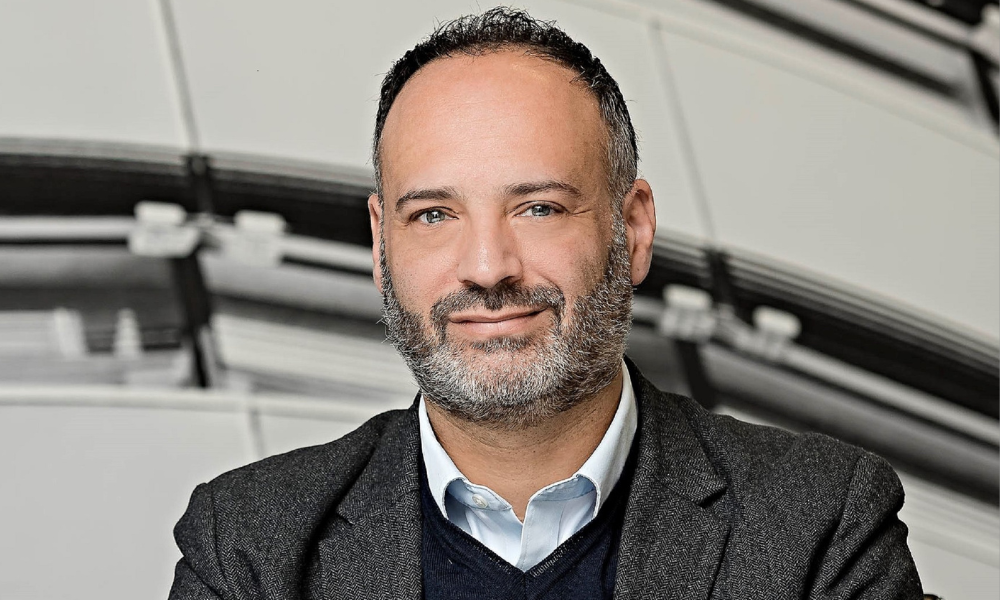Award-winning broker discusses tumultuous year and prospects for the housing industry in 2023

For many lenders and brokers in the mortgage industry, the year is as good as over - and it’s just as well.
With both interest rates and inflation reaching decades-long highs and the housing market showing the first signs of a downturn, there were issues that plagued the industry in 2022. The low point came in September, when Kwarteng’s infamous mini budget threatened to wreck the economy in one fell swoop.
Brokers were left reeling, and although lenders have largely recovered, there is still a palpable unease when mortgage experts are asked to discuss the episode in detail. It provided a sobering reminder of what can happen when governments adopt a cavalier attitude to economics.
But with the Christmas break around the corner, sights are now set on next year and the hope that the market will at least return to a pre-pandemic type of normality, rates-wise. For Andrew Montlake (pictured), MD at London-based mortgage and financial adviser, Coreco, it’s also a good time to take stock.
“It’s been a tough year for everyone. From Coreco’s point of view, we’ve all worked really hard to try and keep everything going, keep our clients educated and ensure everyone’s looked after,” he told Mortgage Introducer.
As a highly respected voice in the space (he is regularly called upon by the BBC and Sky News to give his views on all mortgage-related issues), Montlake accepts the industry’s cyclical nature, and that patience, tenacity and sheer hard graft are essential in order to survive and succeed, although he said these are qualities that are increasingly in short supply among the ‘I want it all now’ generation of young brokers.
“They try to run before they can walk. When I started, I’d look at the top brokers and think ‘yeah, in 10 years I want to be like that’. Now they want to achieve that in 10 minutes. And that’s the difference,” he said.
“You have to accept that being a broker is a journey, and you can’t get from ‘A’ to ‘Z’ in one or even two years. You need to do the hard graft and learn about people. Talk to everyone, be passionate about what you do, and then the rewards will come. But you can’t go from nought to 80 in five minutes.”
Aside from the media’s recognition, he is also held in high esteem by his peers who voted Coreco Best London Broker of the Year at the Mortgage Introducer Awards in September.
So what’s the secret of his success?
“It’s about being consistent and accepting that everyone you talk to is not necessarily going to turn into business straightaway. But I’ve always found that people remember what you do at times like these rather than the good times,” he said, making the point that word of mouth referrals are just as effective now as they’ve ever been.
“Treat everyone like they’re the most important client, regardless. Those things will come back and reward you in the future.”
The conversation circles back to 2023. Asked if he felt confident about the housing market’s prospects, given some of the intractable problems that remain, he was decidedly bullish (he recently went on record to say that next year could be “the optimum time to buy a home”).
“The first quarter in particular is going to be tough. Gross mortgage lending will probably be down by about 10%- 15% next year, but that still leaves a pretty decent market, and lenders still need to lend to make money,” he said.
“If you look at swap rates, they have come down quite a bit and lenders have room now to re-price downwards - a lot of them are just waiting until January.”
His primary concern is the issue of house building and the low supply of homes, especially now that the government has gone back on its pledge to build 300,000 units a year.
“The problem with successive governments is that they’re too short-termist. What we really need is a housing czar; an independent housing minister who’s in place for at least a whole parliament and who chairs a cross-party committee of MPs and civil servants to set in place a 10, 20, or 30-year plan,” he said, conceding that this was unlikely to happen during the current administration’s lifetime.
As if to prove the point, this week the news emerged that building firms are going bust at the fastest rate since the 2008 financial crisis. Despite this, Montlake remains confident about the future of housing.
“It might not happen in the short term, but if in the next parliament there’s a Labour government, there’s a really good opportunity for them to do something like that and actually make housing part of a long-term policy,” he said.



